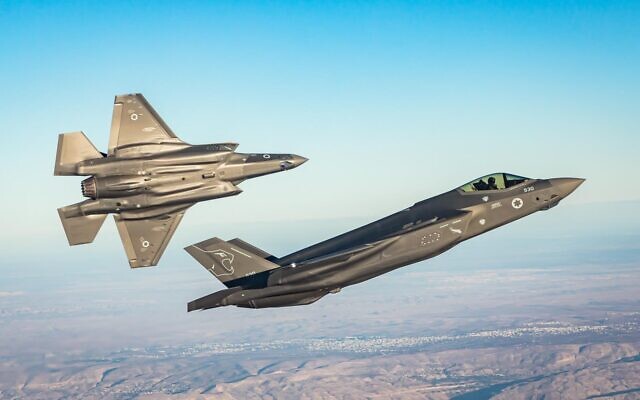
Hezbollah, Iranian commanders reported killed in Israeli strikes; Russian military official says 7 of 8 Israeli missiles downed this week.
Russian anti-aircraft artillery systems in Syria intercepted a number of missiles launched by Israel in airstrikes this week in an area southeast of Aleppo, according to a Russian military official.
Vadim Kulit, deputy chief of the Russian Center for Reconciliation of the Opposing Parties in Syria, told the Russian news agency TASS on Tuesday that Israeli fighter jets fired eight guided missiles on Monday, seven of which were intercepted by Russia’s Pantsyr-S and Buk-M2 systems, both self-propelled, medium-range surface-to-air missile and anti-aircraft systems.
“In a span from 23:39 to 23:51 on July 19, four F-16 fighter jets of the Israeli Air Force entered Syria’s airspace via the US-controlled al-Tanf zone and fired eight guided missiles at facilities southeast of the city of Aleppo,” said Kulit, according to the TASS report.
“One missile damaged the building of a research center in the settlement of Safira in the Aleppo governorate,” he said.
The comments came amid a new report on Saturday that Russia has “run out of patience” with Israel in Syria and is planning a shift in its policies toward Israeli sorties over the country, according to the London-based Arabic newspaper Asharq Al-Awsat which cited an unnamed “well-informed” Russian source.
Syrian media reported two Israeli attacks this past week, on Monday night and early Thursday. It claimed that in both cases most missiles were shot down — though Syria has regularly made such claims in the past, in what Syrian war analysts have generally believed to be empty boasts.
But on Saturday, the Saudi-based Al-Arabiya news network reported that Imad al-Amin, a military commander for Lebanese terror group Hezbollah, an Iranian proxy whose members have fought in Syria on behalf of Bashar Assad’s forces, was killed in one of the Israeli airstrikes this week.
Hezbollah confirmed on Telegram that al-Amin was killed “while fulfilling his duties” but did not specify when or how, Israel’s Kan public broadcaster reported on Saturday night.
Al-Arabiya also reported that a senior official in Iran’s Islamic Revolutionary Guard Corps (IRGC), Sayed Ahmed Qurayshi, was killed under unknown circumstances in Syria this week. There has been no official confirmation from Iran.
The London-based Syrian Observatory for Human Rights reported that Qurayshi has been based in Syria since 2013 and had “participated in many military operations alongside Qassem Soleimani,” the former commander of the IRGC’s al-Quds Brigade who was killed by the US in January 2020.
Earlier Saturday, Asharq Al-Awsat cited an unnamed Russian source as saying that following talks with Washington, Moscow had got the impression that “Washington does
not welcome the continuous Israeli raids,” and thus believes it has the freedom to act more aggressively to thwart them.
In light of this, the Russians were now supplying Syrian forces with more advanced anti-missile systems and know-how, making them more capable of shooting down Israeli armaments, the report said.
It claimed the effect of this was already being seen, with Syrian air defenses shooting down seven of eight Israeli missiles during a July 19 Israeli raid.
Israel’s military does not comment on reports of specific strikes in Syria save for those that are in retaliation for attacks from the country.
Israel has launched hundreds of strikes against Iran-linked military targets in Syria over the years but rarely acknowledges or discusses such operations. Jerusalem fears Iranian entrenchment on its northern frontier, and it has repeatedly struck Iran-linked facilities and weapons convoys destined for Hezbollah.
Russia has repeatedly criticized Israeli strikes over the years.
In January, Russian Foreign Minister Sergey Lavrov said Jerusalem should provide Moscow with intelligence about suspected threats so that it can “neutralize” them, rather than attack them itself.
“If Israel is really forced to respond to threats to the Israeli security coming from the Syrian territory, we have told our Israeli colleagues many times: if you see such threats, please give us the information,” Lavrov said at the time.
Russia has deployed a large military presence in Syria to support Assad through his country’s brutal civil war. In order to prevent unwanted clashes, Jerusalem and Moscow have maintained a so-called deconfliction mechanism, which has allowed the two countries to effectively communicate with one another and avoid altercations.
This mechanism has been generally successful, with the notable exception of an incident in September 2018, in which a Russian spy plane was shot down by a Syrian anti-aircraft missile that had been fired in response to an Israeli attack.
Moscow blamed Israel for the deaths of the troops on board the aircraft, saying Israeli planes had “hidden” behind the Russian aircraft, a charge that the Israel Defense Forces fiercely denied.
(Times of Israel).